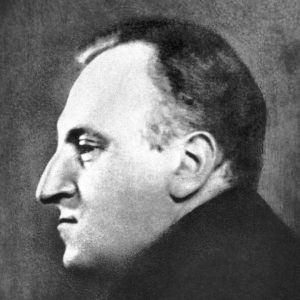Carl von Ossietzky
Speed read
Carl von Ossietzky was awarded the Nobel Peace Prize for his uncompromising pacifism and defence of freedom of speech.

Full name: Carl von Ossietzky
Born: 3 October 1889, Hamburg, Germany
Died: 4 May 1938, Berlin, Germany
Date awarded: 24 November 1936
Concentration camp prisoner and peace prize laureate
In the autumn 1936, the Norwegian Nobel Committee made a daring decision, choosing for the first time to award the Nobel Peace Prize to a person at odds with his own country’s regime. Even before Adolf Hitler came to power in 1933, Carl von Ossietzky had been imprisoned for revealing how the German Government had built up a secret air force with the help of the Soviets, in direct violation of the peace treaty after WWI. Ossietzky was an uncompromising critic of political developments in Germany, and was one of the first persons to be interned in a concentration camp by the Nazis. Tortured and abused, he developed a serious heart condition and tuberculosis. The Norwegian Nobel Committee praised Ossietzky as a defender of freedom of speech and for serving as a symbol of peace. The prize helped to rouse public opinion in the struggle against Nazism.
”In times such as these we must hold the flag high. Cowardice is treacherous. The award to Ossietzky confirms that we are brave enough to show our colours. And we are met with respect. The Hitler regime has no respect for cowards, however; that has been amply brought to bear by Nazi policies.”
Wilhelm Keilhau, in a letter to the Chairman of the Norwegian Nobel Committee, Fredrik Stang, 3 December 1936.

The international campaign for Ossietzky
Ossietzky’s friends and colleagues worked to gain his release from captivity. In 1934, they decided to use the Nobel Peace Prize as a means of helping him, and over a two-year period the Norwegian Nobel Committee received over 500 letters nominating the controversial prisoner. The Norwegian Nobel Institute was also inundated by letters of support, particularly from the labour movement. Socialist Willy Brandt, who had fled from Nazi Germany to Norway, was an important supporter of Ossietzky. He campaigned for the persecuted prisoner and took contact with the Norwegian Nobel Committee. Brandt himself received the peace prize in 1971.
Nominations for Carl von Ossietzky
”I am, have always been and will always be a pacifist.”
Carl von Ossietzky, to Nazi leader Hermann Göring, autumn 1936.
| Pacifist From the Latin pacificus meaning peacemaking. A person who under no circumstance condones the use of violence; a peace advocate. Pacifists have been key figures in the international peace movement. |

Heated debate in Norway and abroad
In Norway, the right wing vehemently protested Ossietzky’s candidature. Conservatives such as Knut Hamsun maintained that the German prisoner was a criminal. Right-wing newspapers were unhappy with the Norwegian Nobel Committee’s decision, which they felt could provoke Germany. A number of Alfred Nobel’s family members criticised the decision, while renowned authors such as H.G. Wells and Aldous Huxley took Ossietzky’s side. Albert Einstein wrote to the Norwegian Nobel Committee, emphasising that awarding the peace prize to the German anti-Nazi would be of great historic significance.
”Ossietzky is not merely a symbol. He is something different and far more valuable. He is a mission and he is a man. These are the reasons why Ossietzky has been awarded his Peace Prize, these and no other.”
Chairman of the Nobel Committee Fredrik Stang, Presentation Speech, 10 December 1936.
Why was King Haakon VII absent from the award ceremony?
Breaking with established tradition, and without official explanation, the Norwegian royal family was not represented at the award ceremony for Ossietzky. Most likely, the Minister of Foreign Affairs, Halvdan Koht, had advised King Haakon against participating in order to make it clear that the Norwegian Government had played no role in the selection of Ossietzky. Minister Koht resigned from the Norwegian Nobel Committee in the autumn of 1936 to underscore the committee’s independence.

Hitler furious with the Norwegian Nobel Committee
Hitler denied Ossietzky permission to visit Oslo to receive the Nobel Peace Prize and proclaimed that no German could accept any Nobel Prize in the future. Nonetheless, the Nazis bowed to the mounting pressure of international criticism and allowed the laureate to receive medical treatment outside the concentration camp. But it was too late. The critically ill prisoner died in a Berlin hospital in May 1938.
Learn more
Carl von Ossietzky was born in Hamburg, though his father, a civil servant, had originally come from a village near the German-Polish border ...
Disclaimer: Every effort has been made by the publisher to credit organisations and individuals with regard to the supply of photographs. Please notify the publishers regarding corrections.
Nobel Prizes and laureates
Six prizes were awarded for achievements that have conferred the greatest benefit to humankind. The 12 laureates' work and discoveries range from proteins' structures and machine learning to fighting for a world free of nuclear weapons.
See them all presented here.
